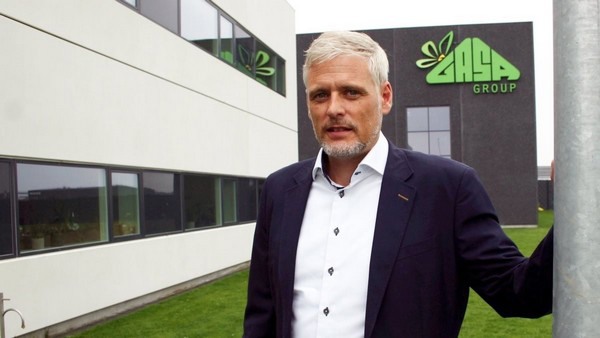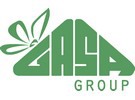Fulfilling the demand with the required or alternative products is currently the main challenge GASA Group is encountering. “It seems that the European growers planted less plants in the midst of the COVID-19 crisis mid-March, which now results in fewer products on the market”, says Daniél Vesterlund, Group CCO of the company. According to him, this development might change the consumer’s demands in the future. In an interview, he tells us more about the rollercoaster ride GASA Group - with all other industry members - have been in, how things are now and the expectations for the coming months.

Daniél Vesterlund
The beginning of the rollercoaster ride
As for almost everyone in the industry, the rollercoaster ride took off mid-March. “As GASA Group in general, we started to see a lack of orders and felt the uncertainty in all parts of the market.” In Denmark, however, the impact was less felt than at their subsidiaries in the Netherlands and Germany. Daniél Vesterlund explains: “GASA Group exports many products out of Holland to the countries that were in lockdown, like Italy, France, Switzerland and the UK. Also for GASA Group Germany, the demand dropped.” This lack of demand lasted until after Easter.
Demand started to increase mid-April
Mid-April, when the markets started to open up again, the demand began to increase and it has been going forward since then. “What we see now is that May has been good with high demand and high prices. There are still markets, which are not running at full speed, but other markets are taking the extra sales.”
March not a lost month
Was March a lost month? According to Daniél Vesterlund, March cannot be considered as a lost month, as many of the orders that were lacking in March and April were pushed forward , and hopefully the demand stays high during June and July. “We see that the demand for plants is high at the moment. Consumers who did not buy plants during the lockdown will do it now or in the coming months,” We have to see the season as one long period this year.
Impact limited
Overall, the impact of the crisis for GASA Group seems to be limited. “Of course we are impacted. And like all other companies, we had to take precautionary measurements within the group. We, for example, secured the packaging facility with limited access of people and we sent those employees home, who could do their work from home. Fortunately, it all went well and now, people are gradually coming back to the office.” In addition, the impact on the sales was not as bad as expected. “As we are so widely spread, not only regarding assortment, but also regarding our sales channels within Europe, damage is limited. Moreover, we must not forget the positive impact of the weather. Usually, the weather is the factor that either drives or discourage sales. Fortunately, we were very lucky with the weather. Also for the young plants, which we supply to the growers mainly in Scandinavia, we expected to see a lot more cancellations in the situation than what we actually ended up with.”
Lack of bedding and balcony plants on the market
Even though GASA Group’s young plants department did not experience a major decrease in demand for young plants from their growers in Scandinavia, probably many other growers decided to cancel orders. Combined with a high demand there is a lack of plants on the market at the moment. “Particularly in the bedding and balcony plants, there are a lack of products on the market these days. As a result, we need to find new ways to fulfil our customers' orders, and therefore we often offer alternatives.”
Future 'taste' of products might change
According to Daniél Vesterlund, this development of offering alternatives to the traditional products that are being requested might change the future demand of products. “Basically, consumers want to decorate their gardens, and if the traditional products are not being offered, they will try out something new. Moreover, if they have success with these new products, they might buy them again. In the end, it might change the behaviour of the consumer and in turn our customers.”
Positive outlook
When looking to the coming months, Daniél Vesterlund is optimistic. “As many people are expected to stay at home this summer, they will probably spend extra in decorating their gardens this year compared to other years. But it is always difficult to predict in extreme situations like the one we have all been through. However, one thing is for sure; the change has accelerated new and planned initiatives and the industry will not go back to “normal”. There will be a new normal and at GASA Group, we are ready for that.
For more information
GASA Group
Daniél Vesterlund
Email: [email protected]
www.gasagroup.com
